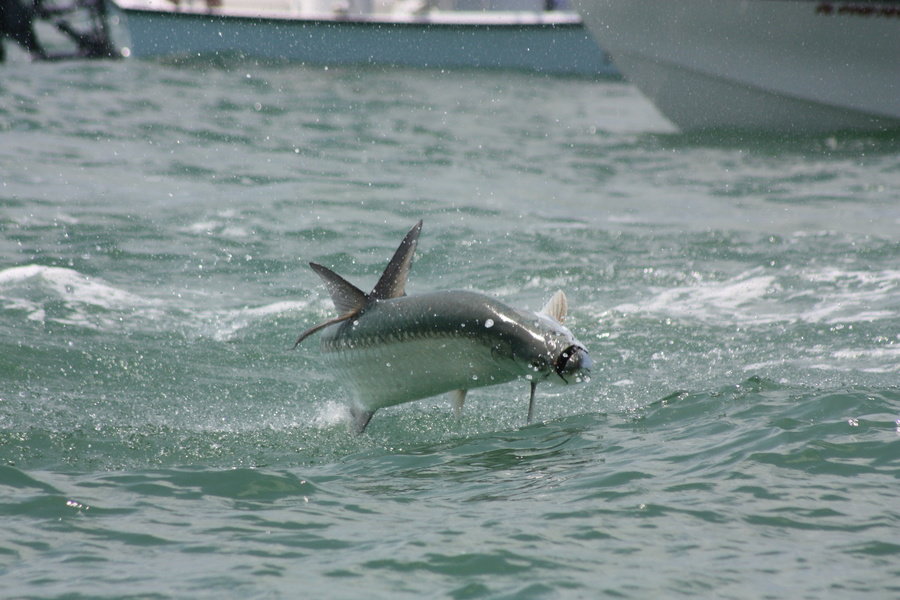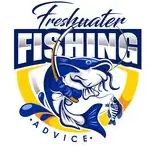Best Time & Tide to Catch Big Tarpon

Tarpon are one of the most prized and hardest fighting fish in North American waters but knowing what time of day is best to catch them can make a huge difference. The specific season and tidal condition will also play a big role. Let’s take an in-depth look to learn where and when you need to be on the water fishing for tarpon for optimum results.
What is the best time of day to catch tarpon? The best time of day to catch tarpon, according to many tarpon anglers, is early morning and late afternoon during the spring, summer, and early fall months. Tarpon will bite at night but live bait or fresh dead bait is preferred over lures. You can catch tarpon during the day and the tide phase does play a big role in determining tarpon action.
Let’s take a deeper look into this topic. There are a ton of factors that influence tarpon migration, feeding windows, and behavior. Be sure to read each section thoroughly so you can make the best fishing decisions for long-term tarpon fishing success.
I know this is a bit random, but if you ever wanted to go on a guided or chartered fishing trip in freshwater or saltwater, you should check out Fishing Booker. They are the leading database of certified and professional fishing guides at the guaranteed lowest prices.
They have countless listings for such dream destinations as the Florida Keys, Corpus Christi, Great Lakes, San Diego, Central America, Montana, and many more. Click here to visit Fishing Booker and book your trip of a lifetime at very affordable prices.
For a complete breakdown of the best times & seasons to catch tarpon in the Florida Keys, please check out this helpful article I wrote.
Best Time of Day to Catch Tarpon
Tides & Tarpon
Tides can have a big impact on tarpon. At high tide, tarpon will be really spread out swimming around the shallows for food. They will have full access to a ton of water and baitfish. I don’t recommend fishing for tarpon at high tide if you want to catch a lot of fish.
Instead, locate channels once the water starts flowing back out of the bays. Tarpon will congregate in these channels facing “upstream”.
Most of the water flowing back out of the bay into deeper water will flow through these shallow channels. Tarpon will be a lot easier to locate and cast at. This is the best time of a given day to catch the quantity and quality of tarpon you’re after.
Morning vs. Midday vs. Evening
There is a ton of debate among serious and recreational tarpon fishermen as to what period of the day is best. I think it really depends on your fishery and the tide cycle.
Most anglers do best in the morning and late afternoon during the summer months because the water is cooler and the overhead light is reduced.
Tarpon fishing can be excellent during the middle of the day too, especially on deeper structures like wrecks or sandbars. The tide can have a big influence on this as well.
Can You Catch Tarpon at Night?
You can catch tarpon at night as long as you are patient and pick a good location. Tarpon will gravitate towards some type of structure, both for food and protection from bull and hammerhead sharks. This is especially the case at night.
Look for wrecks, sand bars, or rocks that cause drop offs in water depth. At night, tarpon will have a tough time locating food so I recommend using live bait like menhaden or fresh dead bait. Give the baits time to soak and the tarpon time to locate the food.
Lures won’t work on most nights as well. Occasionally on full moon nights when the moonlight is strong, you can have some success fishing topwater for tarpon.
But I would still fish with live bait instead. I have heard that the first 2 hours and final 2 hours of night is best for nighttime tarpon.
For a complete breakdown of the best times to fish in Cancun, please check out this helpful article I wrote.
General Seasonal Migratory Patterns of Tarpon
Tarpon are hard to catch over the winter time when water temperatures are below 75°. Once temperatures reach that temperature, tarpon become a lot easier to catch and pattern.
In the Gulf of Mexico, Caribbean, and Florida, water temperatures will reach favorable levels around March but sometimes as late as early April.
Tarpon will remain here until about early June. Once June rolls around, migratory tarpon will head for cooler waters up the coast in search of better hunting grounds.
Resident stragglers will remain behind. Tarpon will reach as far north as South Carolina and remain here until September when the colder fall temps force them back down south.
Best Time & Season to Catch Tarpon
Bahamas & Central America
The magic number for early season tarpon fishing seems to be 75°. Once water temperatures reach that threshold, tarpon will begin aggressively feeding and the bite will turn on.
Tarpon are notoriously hard to catch during the winter months but once March rolls around and water temperatures rise, the bite will be on. You can expect migratory tarpon to leave the region around the beginning or end of June but a few straggler resident fish will remain until fall.
The time to catch a lot of tarpon is from March through June where both resident and migratory fish are present. The best time of day to catch tarpon reported by many anglers is early morning and late afternoon on most days.
Nighttime fishing can be good too if you are using live or fresh bait. The middle of the day can be good but you will need to fish deeper water, preferable around structure causing a drop off in water like a wreck, bridges, sand bars, and rocks.
Gulf of Mexico & Florida
Tarpon will start really biting once the water temperatures reach 75° and higher. In most areas, this will occur in late March and April but it can be achieved in early-march in some waterways.
The bite can be very tough before that reaches that temperature. Winter tarpon fishing is notoriously tough in Florida. Most big tarpon will remain in these areas until June at which point the migratory fish will move leaving only the resident stragglers here until fall.
You can catch tarpon all summer long but if you want to catch the most fish, target tarpon in May & June when both the migratory fish and resident fish are present.
The best time of day to catch these fish is early morning and late afternoon, especially if it coincides with a high tide.
Remember though that a high tide will scatter fish around the shallows whereas as a falling tide will concentrate them into channels where they can feed on bait funneling back out into deeper water.
Eastern Atlantic Coast
(Georgia, South Carolina)
Tarpon arrive in June and usually linger through September. Most of them spent their mid-spring in the Bahamas or Florida. Big tarpon start arriving towards the end of June and will remain all summer long. They will remain in Georgia into October before the colder water pushes them south.
The best time of day to catch these tarpon inshore is either at peak tide or when the water is really drawn down during ebb tide. At peak tide, the fish will have access to the most water and be spread out.
Locating them will be harder but doable. At lowering tide as water is drawing out and into channels, fish will be the most congregated. Fish these channels where food will draw into.
Eventually tarpon will be forced back into deep water once the tides goes. Don’t fish during mid-tide because the back and forth of the current will stir up sediment and make the water very murky.
Tarpon won’t be able to locate your lure as easily. In the coastal waters, that middle tier tide stage is really aggressive and the water gets really dirty. At high tide and at the tail ends of the receding tide, the water will be clear enough for tarpon to find food.
If you ever want to fish Charleston, this helpful article I wrote on the best times to fish Charleston will really help you out. For a complete breakdown of the best times to fish Punta Cana, please check out this helpful article I wrote. For a complete breakdown of the best times to fish Mobile, Alabama, please check out this helpful article I wrote. For a complete breakdown of the best water temperature for tarpon fishing, check out this article. Click here to see a breakdown of the best weather for tarpon fishing.
